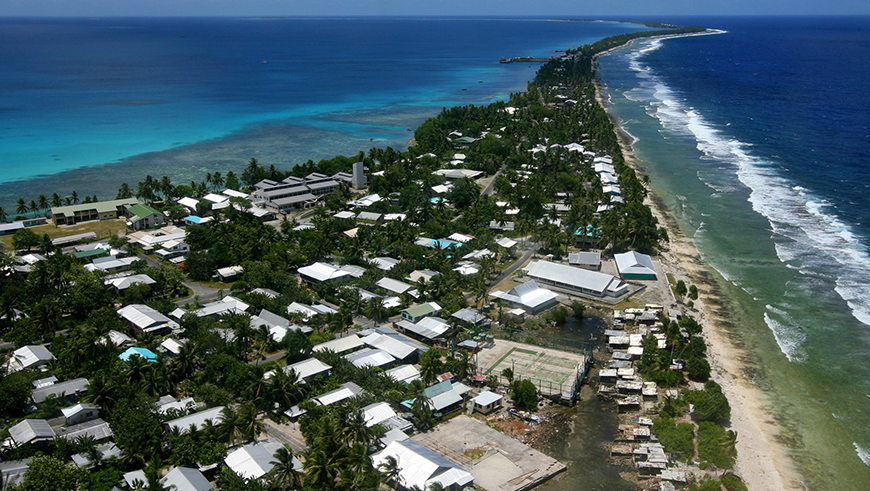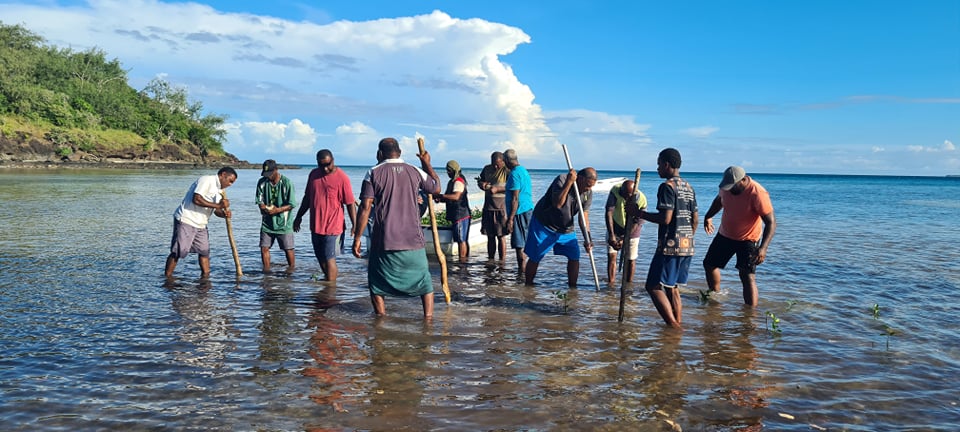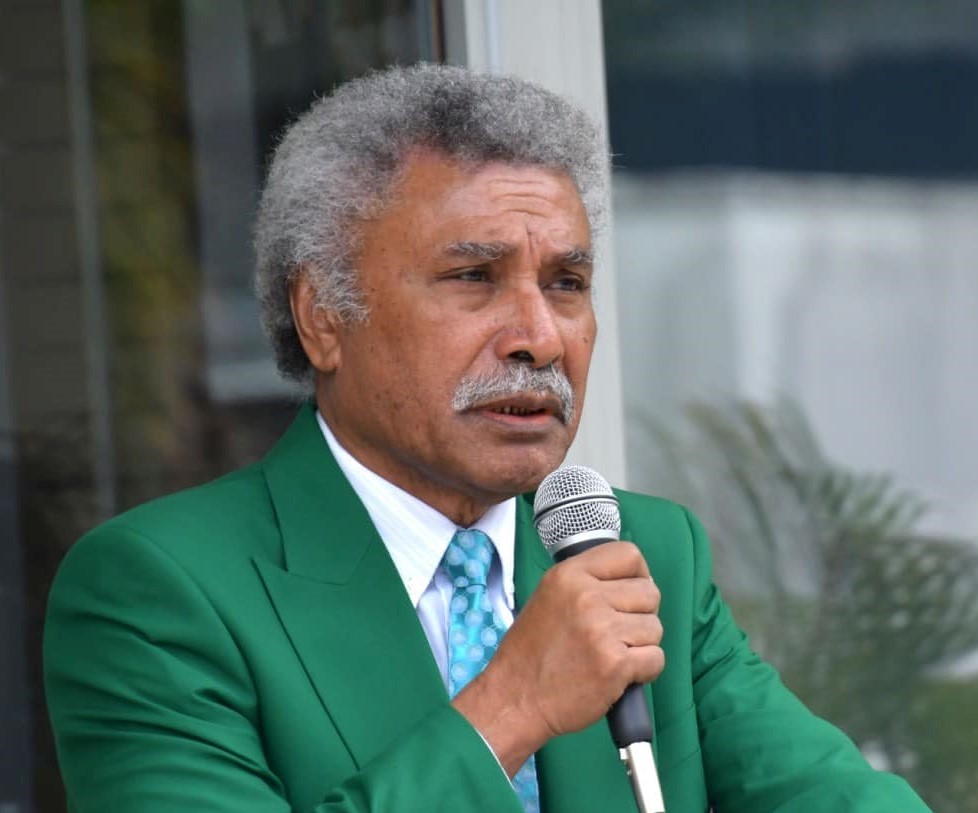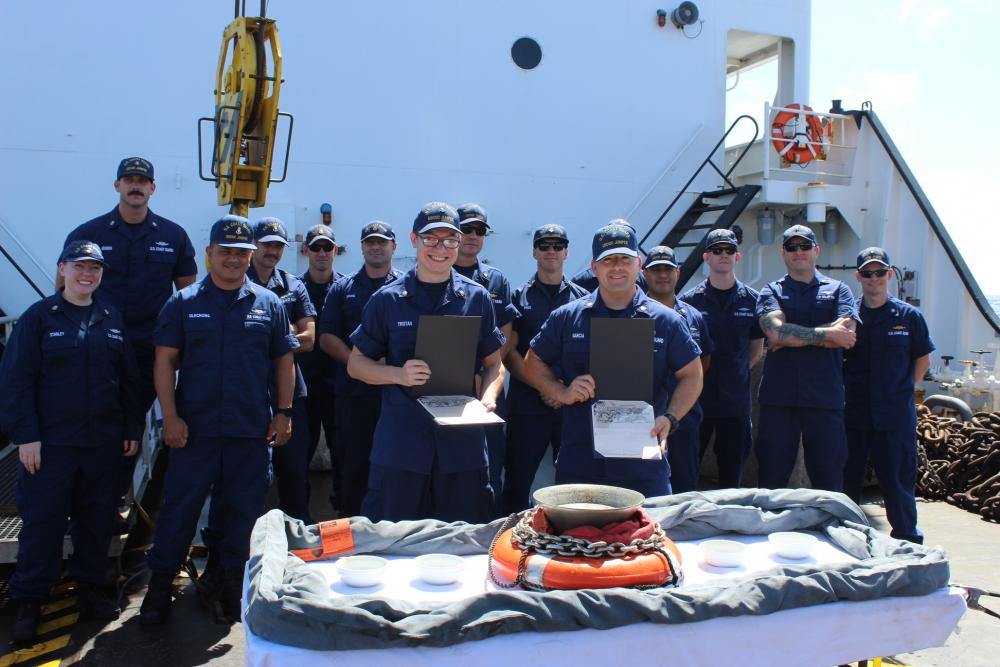Project to begin with risk assessments, surveys, and workshops to identify major climate threats on Melanesian fishing communities.
Those who live on the islands and atolls of the southwestern Pacific Ocean are exposed to rising seas and severe storms like almost no one else on Earth, and yet only a fraction are insured against the growing threat of climate change-related ecosystem, human, and economic losses.
A new initiative from WWF and the global advisory, broking, and solutions company Willis Towers Watson, with support from the Special Climate Change Fund (SCCF), aims to close this gap through the creation of new insurance and financial products designed to protect fishing communities in Fiji and Papua New Guinea.
The two countries, which along with the Solomon Islands, Vanuatu, and New Caledonia, comprise the region of Melanesia, lie in the eastern half of what is known as the Coral Triangle, an ecosystem that teems with marine biodiversity.
It is no surprise, then, that their populations depend heavily on fishing and coastal ecosystems for both food and income. Small-scale fisheries are particularly important. The Food and Agriculture Organization estimates that between 250,000 and 500,000 Papua New Guineans and half of Fiji’s rural households rely upon subsistence fishing – 10 to 20 times the number employed by commercial operations.
And while they are among the world’s smallest emitters of carbon dioxide, the islands of Melanesia face both acute and chronic threats from climate change.
WWF and Willis Towers Watson chose to focus on Fiji and Papua New Guinea in their venture because of the two nations’ exceptional vulnerability to climate change and its threats to coastal livelihoods. Since each country had a different risk profile, they also offered scope to explore a range of financial products through the new initiative.
High winds and storm surges
Fiji, a nexus of more than 300 islands and atolls, suffers frequent onslaughts from tropical cyclones, which bring dangerously high winds and storm surges. Cyclones are also an issue in northern Papua New Guinea, as are increasingly heavy rains that trigger flash floods and landslides.
The Category 5 cyclone Winston, the strongest storm ever to make landfall in the South Pacific Basin, battered Fiji in February 2016 and left nearly US$1 billion in damage in its wake. Since only about US$130 million of this was covered by insurance, the devastation had lasting economic effects, particularly in Fiji’s poorest communities.
Seru Moce, chairman of the Qoliqoli Cokovata Macuata Committee, the body that manages the critical fishing grounds that lie along the Great Sea Reef – the world’s third-largest – said fisheries and reefs face enormous pressure after a cyclone.
“The damage caused by Category 5 tropical cyclone Yasa in December 2020 and Category 4 tropical cyclone Ana on January 2021 to many coastal and inland communities in Macuata made it very difficult for many fisherman and farmers to provide for their families since 80% of their livelihood had been destroyed,” said Moce.
The Qoliqoli Cokovata – “qoliqoli” are traditional fishing grounds – are under the collective custody of the Dreketi, Macuata, Sasa, and Mali districts on the coast of Vanua Levu, Fiji’s second-largest island.
“Learning from the experience of the past two cyclones, our communities need to be prepared to provide for their families, because cyclones and other natural disasters will continue to be experienced and I believe that having this form of insurance will provide assistance to many fishermen and farmers in receiving payouts which can be deployed faster at the most critical time,” Moce added.
Coastal erosion & coral bleaching
Climate change is also behind more insidious forms of economic hardship across Fiji and Papua New Guinea.
Rising sea levels erode coastlines and cause saltwater incursions, while viral and bacterial outbreaks among humans and marine species are expected to become increasingly common as waters warm. At the same time, fishery yields are endangered by ocean acidification and marine heatwaves, which bleach coral reefs.
Moce stressed that coastal households must diversify their sources of income to better prepare for the climate-related changes to come.
“We are advising our local communities of the need to be more strategic and save for the future of their families and communities by not focusing on agriculture or fisheries as the only source of income,” he said.
While forecasts suggest these threats to the lives and livelihoods of coastal inhabitants are only likely to mount, the new WWF/Willis Towers Watson project aims to develop financial shock-absorbers that can at least help communities adapt.
There is currently little in the way of climate risk protection available in the region beyond insurance policies covering fixed assets such as property. These only pay out after physical damage, and only after a lengthy loss-adjustment process. Even then, very few households carry such coverage. In Fiji, the penetration rate for non-life insurance is just 1.42 percent. That rate is an even lower 0.59 percent in Papua New Guinea.
While traditional support networks such as Papua New Guinea’s wantok system (“one talk” in Tok Pisin, the country’s lingua franca) can offer vital help during individual or familial hardship – such as when children are orphaned – they are unsuited to climate shocks, which often affect whole communities at once.
Safeguards tailored to climate threats
Efforts under the project’s banner will begin with risk assessments, surveys, and workshops to pinpoint the major climate threats and their short and long-term effects. These will help teams identify financial products best suited to enhancing resilience.
Willis Towers Watson will bring to bear its expertise in shaping and implementing innovative regional, national, and provincial catastrophe risk financing solutions.
The project builds upon its work in the Pacific region, particularly efforts related to Small Island Developing States, ocean risk, coastal adaptation finance, and ecosystem resilience, along with its links to both local Pacific insurance companies and the regional risk pool, the Pacific Catastrophe Risk Insurance Company.
WWF-Pacific will help Willis Tower Watson build bridges with local government and communities and offer guidance on local financial processes, languages, and culture.
The project aims to identify and create a suite of appropriate financial instruments, along with models for their deployment. Since many households lack the means to pay premiums, work will also focus on ways to enable them to fund coverage.
These products will be geared to help communities better withstand the adverse impacts of climate change, including both major shock events and slow-onset threats, said Francis Areki, WWF-Pacific’s Conservation Director.
“The project is focused in Fiji and Papua New Guinea, more specifically in coastal communities in the Tavua district, the Qoliqoli Cokovata in Macuata and Madang province in Papua New Guinea,” Areki said.
He said the project offers an opportunity to improve community understanding of risks, risk management, and risk financing mechanisms, as well to increase financial literacy.
Teams will support institutional efforts to establish insurance coverage as an incentive for fishers who adopt sustainable practices, to address administrative and regulatory issues related to the products, and to identify markets willing to underwrite risk.
As a crucial final step, to build understanding and promote adoption, teams will craft training materials relating to the product suite and develop peer-to-peer networks to promote them.
The project was one of nine winners chosen in 2019 from 388 submissions in the inaugural round of the Global Environment Facility’s Challenge Program for Adaptation Innovation, which provided financing for viable new private-sector ideas for building resilience in communities and economies.
Chizuru Aoki, the Lead Environmental Specialist at the GEF and Manager of the SCCF, said the Melanesia project was an excellent example of how innovative financing solutions can increase local climate change resilience and also potentially be scaled for broader impact.
Insurance needs to be an essential tool in every vulnerable country’s climate change preparedness toolkit, and this initiative in Fiji and Papua New Guinea will provide an excellent model for how even remote communities can make insurance products more accessible,” she said.
This story was published at Global Environment Facility on 2 August 2021, reposted via PACNEWS.




